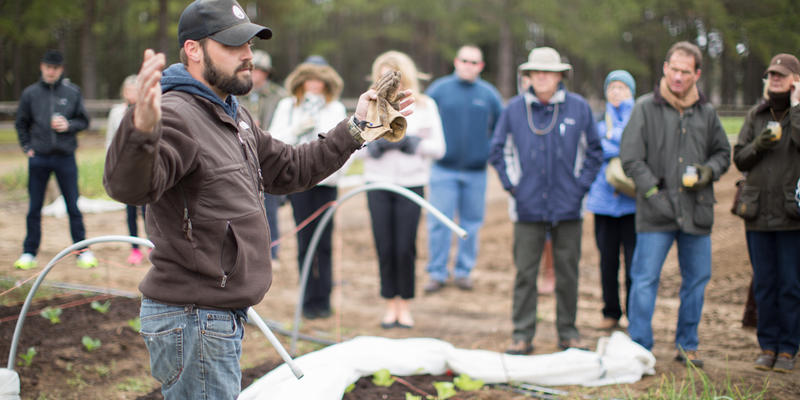
Dirt Works Incubator Farm; photographs by Foxworthy Studios
You have likely seen the signs and heard the buzz around town. The month of April in Charleston is the Eat Local Challenge, sponsored by Lowcountry Local First. The challenge is to spend at least $10 per week on truly local food, helping teach us as consumers to be more conscious about where our food is coming from. As someone who is gluten-free and strives to eat the cleanest, healthiest food possible, why does it matter if I buy local food? What does it even mean to eat locally, and how does it affect me?
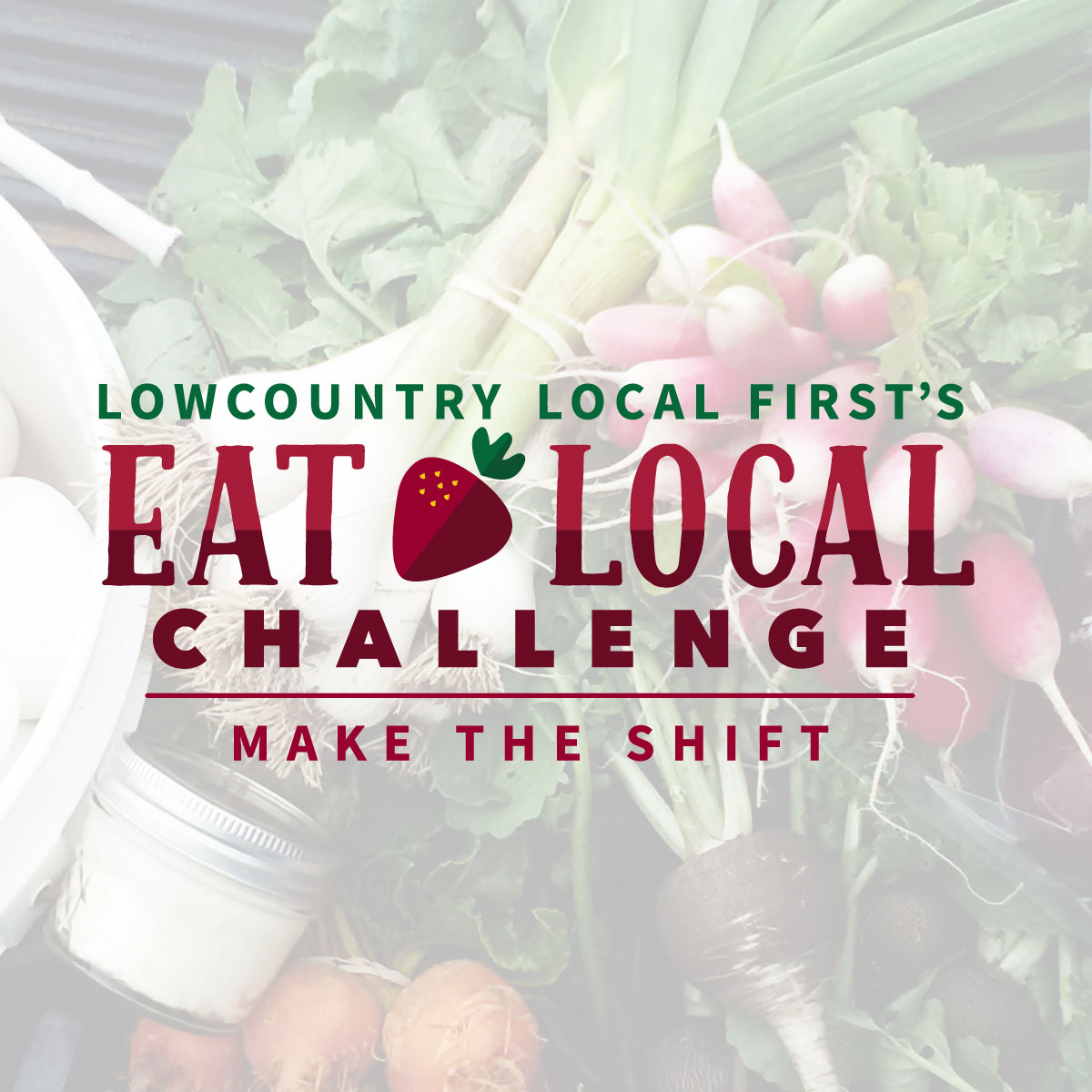
In an article by Time magazine, David Boyle of the New Economics Foundation, a London-based think tank, describes the slow leak of money out of a community through large chain and big-box stores. "Money is like blood. It needs to keep moving around to keep the economy going." When this money is spent supporting the infrastructure, shipping demands, and staff of large chains, this money, like blood, "flows out, like a wound."
Environmentally, when food is distributed through national and international channels, the food accrues what is known as "food miles," a term used to describe how far a food has traveled from its source to your plate. On average, processed food travels 1,300 miles. Local food systems, by contrast, are grown on local land (preserving undeveloped land) and travel only from the farmer to the local farmers market or grocery store.
But lastly, food grown locally is fresher and, therefore, tastes better and has more nutritional content. As food travels, it is shipped well before it has ripened, which decreases flavor, and the food oxidizes, losing nutrients. Local produce can be harvested, and local meat can be slaughtered, and used right away.
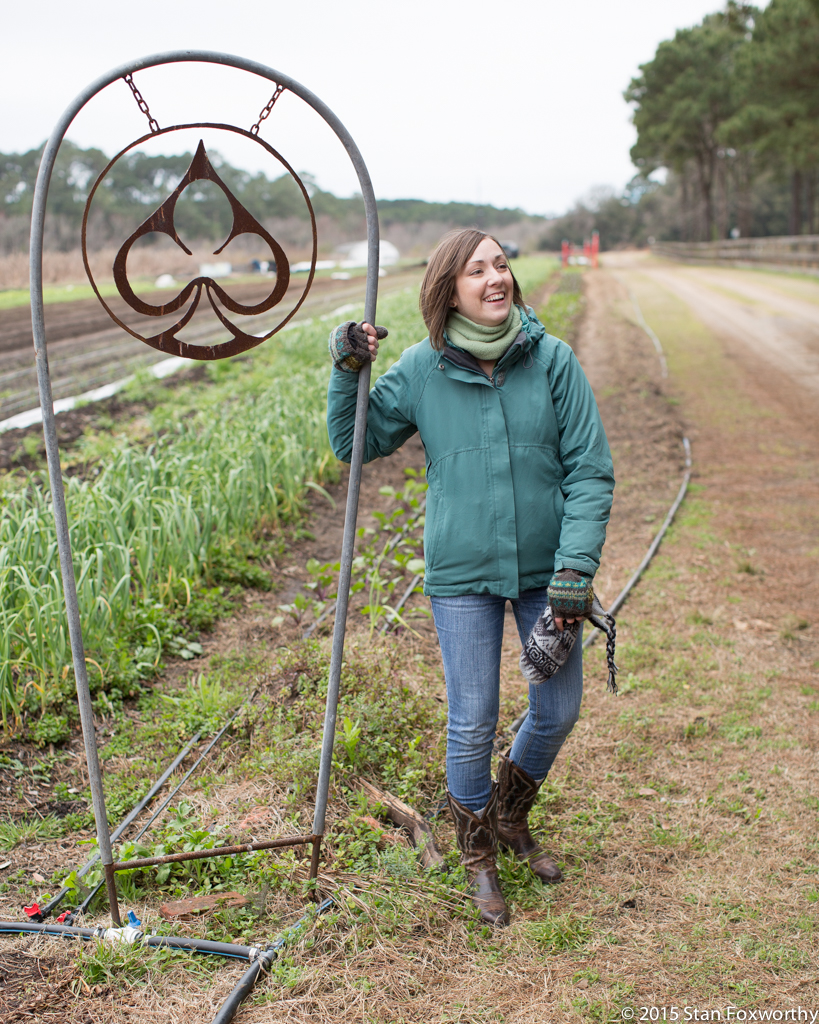
Nikki Kelley, Sustainable Agriculture Director of Lowcountry Local First
Lowcountry Local First states, “The goal of the Eat Local Challenge is to help consumers ‘Make the Shift’ in their choices, their spending and their overall local food consumption. What we hope participants will find is that eating locally isn’t really that challenging.” By shifting only $10 per week to truly local food from the farmers in our region, the economic impact is staggering. According to Misty Lister of Lowcountry Local First, here are the raw numbers:
- $24K: economic impact on local farmers/producers/fishermen if 600 Tri-County residents shift $10 per week to local during the month of April
- $288K: economic impact on local farmers/producers/fishermen if 600 Tri-County residents shift $10 per week to local food for 1 year.
- $29M: economic impact on local farmers/producers/fishermen if all Tri-County residents shift $10 per week to local food for the month of April
- $343M: economic impact on local farmers/producers/fishermen if all Tri-County residents shift $10 per week to local food for 1 year
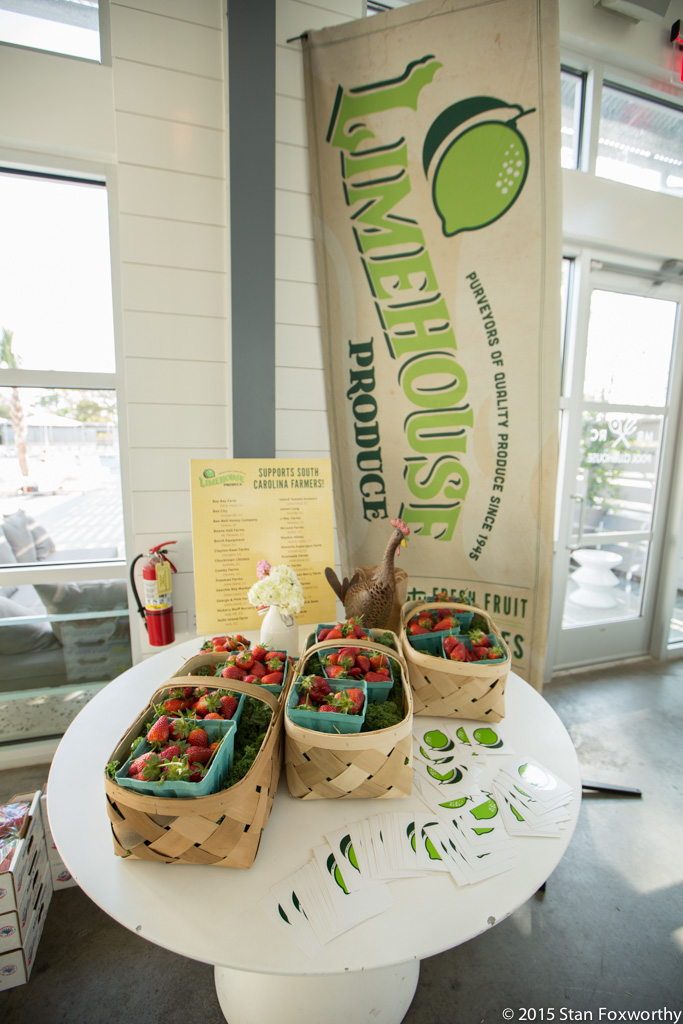
Lowcountry Local First April Mixer, hosted by Limehouse Produce
So how do we go about buying local foods?
-Through one of the Lowcountry’s many CSA’s (Community Supported Agriculture), where weekly selections, or shares, of local meats, cheeses, and produce are delivered to spots around town once a week.
-Through one of our local farmers markets
-Through one of our many local fish markets, such as Mount Pleasant Seafood
-Or through the upcoming Lowcountry Street Grocery, a mobile farmers market (it’s a big green bus set to launch later this year!) that will provide local produce to low income and underserved areas of our community.
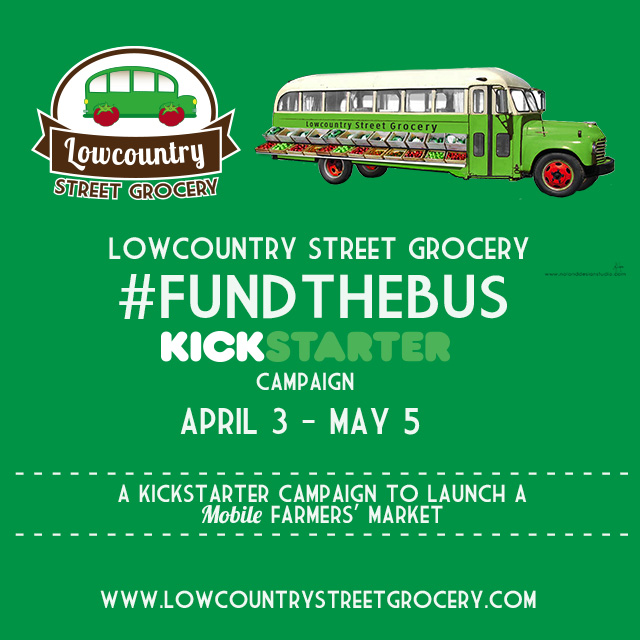
Lindsey Barrow Jr. of Lowcountry Street Grocery is currently raising funds for the Big Green Bus, which will deliver local produce to our community. He explains, “It is not only important to eat locally, but to make sure everyone has the ability and availability to eat locally.” Along with business partner Kate DeWitt, Barrow wants to see that residents in food deserts in our region, where there is no access to fresh local produce, can regularly eat food from our Lowcountry farms. The bus will be a moveable farmers market, making stops around town.
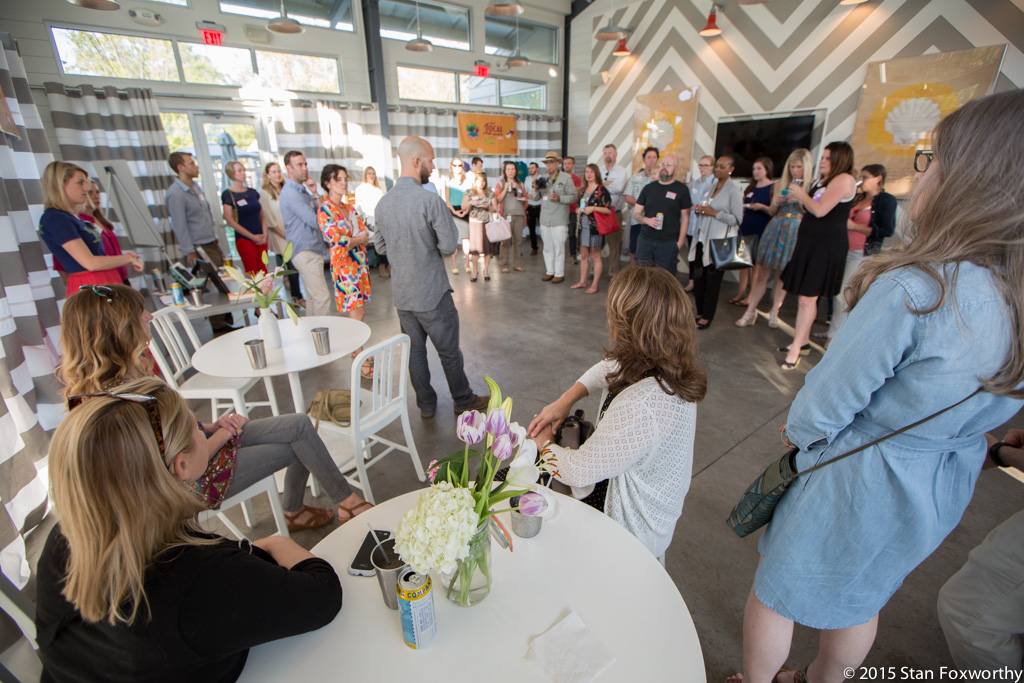
Lowcountry Local First April Mixer at Mixson Bath & Racquet Club